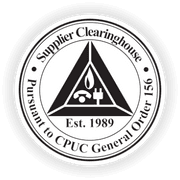By Jodi Detjen, written in conjunction with the Third Path Institute.
Why do women find work-life balance so hard? Why is “having it all” such an elusive quest? Why haven’t women yet reached equality in the leadership ranks?
Many professional women on the pursuit of career success identify themselves through their work, abandoning their own needs and exhausting themselves in the process. After time spent on this path, many women might reach burnout and begin to opt out of their career.
But the truth is that women do not need to choose between work and life — they can choose both and live both fully. In order to achieve your goals of living a balanced, whole life, you can utilize what we call integrated leadership. Integrated leaders use 21st century skills. They enable leaders to be more efficient and leverage relationships to help balance workloads. Leaders develop these skills through significant trial and error as they navigate the constantly changing landscape of work and home.
Over time you’ll learn how to be responsive to clients, develop new business, delegate effectively and have time and energy for your life outside of work. Here are the top 10 essential 21st century skills that will help you do more with less time:
1) Self-Discipline.
Self-discipline enables pioneers to keep on reaching for their goals, even when they encounter challenges along the way. It helps you focus on the present moment and get work done despite distractions — even if it isn’t your favorite work.
2) Plan and prioritize.
When you plan and prioritize, you decide among competing priorities, find win/win solutions wherever possible, and plan steps to achieve long term goals. Tradeoffs are inherent when identifying short term goals you may have to let go. Shifting from the short-term to a broader horizon will allow you to reap long term benefits.
3) Anticipate the future.
Anticipating the future allows you take a pro-active approach to managing long-term events. It also includes making those investments and setting up structures that can provide more flexibility.
4) Set personal boundaries.
Define clear boundaries by saying no, going slow and saying yes to the areas that one can manage effectively. This is one of the most important but also challenging skills. It requires one to be assertive and state one’s own needs while also considering the needs of the whole.
5) Build strong relationships.
It’s crucial to build an internal and external network of others that interdependently support each other’s work and life. Relationships requires one to move beyond the ‘I need to do it all myself’ mentality and include others in the process.
6) Create a sense of reciprocity.
Mutual support greases the wheels. It enables one person to cover for another when an unexpected issue arises. Creates a reinforcing loop creating stronger relationships based on trust and helps to develop resilience within the organization as employees learn to rely on each other.
7) Manage expectations.
Set clear expectations and ensure that these are mutually understood in order to reduce unnecessary effort and the chance of over promising. Pro-active expectation setting helps maintain a motivating environment.
8) Be flexible.
Flexibility empowers others to meet expectations while being creative in how to achieve the goal. Flexibility is mutual whether it’s from a manager or employee. Flexibility opens doors to new opportunities and new information.
9) Develop win-win delegation.
Understanding the skills and areas of development for oneself and one’s junior employees enables effective delegation of work. Done effectively, leaders have more time to focus on strategic work they are uniquely qualified to do.
10) Use technology strategically.
It’s important to use technology pro-actively to manage workflow. Technology allows us flexibility and accessibility through e-mail, voice assistants, and remote work. But it’s also crucial to limit technology use to create time to focus with minimal disruptions.
Our research shows that through the development of these 21st century skills, both businesses and individuals benefit and create work/life balance on their own terms. Thanks to integrated leaders paving the way, there is a growing understanding of how it can be done. You too can create the environment that enables you to reach your life goals by developing the skills to foster a more collaborative and effective workplace.
The Third Path Institute explores innovative ways to redesign work and create time for family, community, and other life priorities. To learn more, visit thirdpath.org.
If you’re looking to help women in the workplace become more effective leaders, check out our women in leadership training. This training helps women build foundational 21st C. leadership skills for long-term success. Contact Us to learn more.
Contact Us




